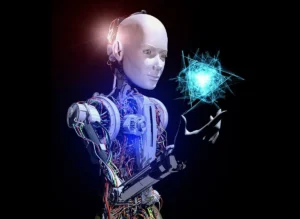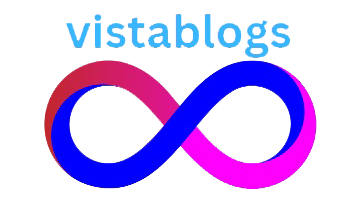Quantum AI: In the vast cosmic dance of particles and waves, where uncertainty reigns supreme, a new frontier emerges—one that marries the ethereal elegance of quantum mechanics with the pragmatic power of artificial intelligence. Welcome to the world of Quantum AI, where qubits entangle, algorithms shimmer, and the boundaries of computation blur.
Defining Quantum AI
Quantum AI (QAI) is the enchanting offspring of quantum computing and machine learning. It waltzes on the delicate tightrope between the quantum and classical realms, harnessing the peculiar properties of quantum bits (qubits) to enhance the capabilities of AI systems. Imagine a symphony where Schrödinger’s cat plays the violin, and gradient descent pirouettes through Hilbert spaces.

Why Quantum AI Matters
- Exponential Speedup: Classical computers, though formidable, buckle under the weight of certain problems. Quantum computers, fueled by qubits that can exist in superpositions, promise exponential speedup. Tasks that would take eons on classical hardware—like simulating complex molecules or optimizing supply chains—become feasible in quantum time.
- Parallel Universes of Computation: Unlike classical bits (which are either 0 or 1), qubits can be 0, 1, or both simultaneously. This multiplicity creates a quantum canvas where algorithms can explore parallel universes of computation. Think of it as a cosmic choose-your-own-adventure book, where every page turn reveals new insights.
- Quantum Supremacy: In 2019, Google’s quantum processor performed a calculation in 300 seconds that would stump classical algorithms indefinitely. This feat marked quantum supremacy—the moment when quantum computation outpaces classical counterparts. Quantum AI is our ticket to this brave new world.
Quantum AI vs. Classical AI
Picture a duel: Quantum AI dons a shimmering cloak, while Classical AI clutches its binary sword. Here’s how they differ:
- Representation: Classical AI relies on bits (0s and 1s) for representation. Quantum AI, however, twirls with qubits, which can be 0, 1, or both. It’s like comparing a monochrome sketch to a multidimensional hologram.
- Algorithms: Classical AI algorithms—gradient descent, decision trees—strive to minimize error. Quantum AI introduces quantum gates, quantum neural networks, and quantum-inspired optimization. It’s like swapping a horse-drawn carriage for a quantum teleporter.
- Applications: Quantum AI pirouettes into uncharted territories. It dances with quantum annealing to solve optimization puzzles, whispers cryptographic secrets through quantum key distribution, and dives into drug discovery’s quantum ocean. Classical AI, while powerful, gazes longingly at these quantum realms.

Quantum AI in Action
1. Quantum Annealing
Imagine a treasure hunt across rugged terrain. Classical algorithms stumble, but quantum annealing glides effortlessly. It optimizes supply chains, schedules flights, and designs quantum circuits. D-Wave’s quantum annealers lead the way.
2. Quantum Neural Networks
In this cosmic neural network, qubits fire like neurons. Rigetti’s Forest and IBM’s Qiskit forge quantum neural connections. They dream of recognizing cat pictures in parallel universes.
3. Quantum-Inspired Algorithms
Inspired by quantum principles, variational quantum algorithms (VQAs) dance with classical computers. They flirt with optimization, teasing out optimal solutions from tangled landscapes.
4. Quantum Cryptography
Quantum key distribution (QKD) whispers secrets encoded in entangled photons. It’s the ultimate cloak-and-dagger dance, securing communications against eavesdroppers.
5. Quantum Drug Discovery
In the quantum laboratory, molecules waltz with qubits. Rigetti’s hybrid quantum-classical approach simulates molecular behavior, unlocking drug design secrets.
Challenges and Limitations
- Noise and Decoherence: Qubits are fragile dancers, easily swayed by external disturbances. Error correction choreography is essential for sustained performances.
- Scalability: Quantum ballets need more dancers. Scaling qubit counts while maintaining coherence is a grand challenge.
- Accessible Hardware: Quantum computers are rare gems. Cloud-based access democratizes the dance floor, but we crave more.

The Quantum Dawn
As quantum hardware matures, Quantum AI will pirouette into our lives. Imagine personalized medicine prescriptions, climate models that embrace quantum chaos, and AI that dreams in Hilbert spaces. The quantum dawn beckons—a symphony of qubits, algorithms, and boundless curiosity.
So, dear reader, fasten your seatbelt. The quantum tango awaits, and the stars themselves whisper: “Quantum AI—where magic meets computation.”
Frequently Asked Questions
1. What is Quantum AI?
A. Quantum AI refers to the utilization of quantum computing for machine learning algorithms. Unlike classical computers, quantum computing harnesses the unique properties of quantum mechanics, such as superposition and entanglement. These advantages enable quantum AI to tackle complex problems that are beyond the reach of classical computers.
2. What is Quantum Computing?
A. Quantum computing operates based on principles different from those observed in our everyday experiences. It requires a quantum model of data processing, which involves handling quantum data stored in qubits. However, quantum data is challenging to observe and store due to its valuable features—superposition and entanglement. Hybrid quantum-classical models are essential for error correction and proper functioning of quantum computers.
3. How Does Quantum AI Work?
A. Quantum AI relies on quantum algorithms that leverage quantum effects (like superposition and entanglement) to solve problems more efficiently. These algorithms introduce entirely different execution ideas compared to classical computing. Quantum AI can significantly enhance machine learning training and algorithm optimization.
4. Why Is Quantum AI Important?
A. While classical AI has made rapid progress, it still faces technological limitations. Quantum computing offers a solution by eliminating obstacles to achieving Artificial General Intelligence (AGI). With quantum computing, we can rapidly train machine learning models, create optimized algorithms, and advance technology in unprecedented ways.
References:

